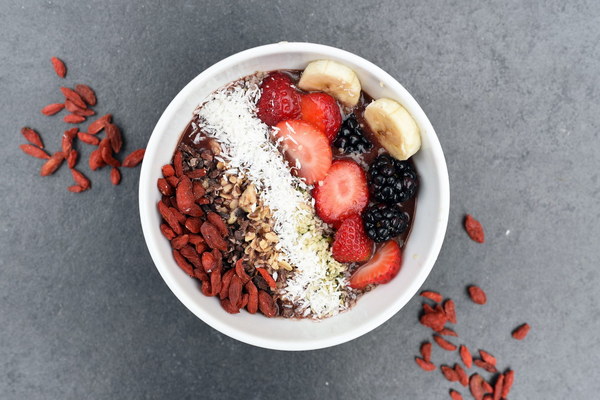Tea vs. Coffee Which is the Better Antioxidant for Anti-Aging
In the world of beverages, both tea and coffee have their own set of benefits, but when it comes to anti-aging properties, many people are left wondering: which one is better? Is it tea or coffee that possesses the higher level of antioxidants, which play a crucial role in protecting our bodies against aging? Let's dive into the details to find out.
First, let's talk about antioxidants. Antioxidants are substances that help neutralize harmful free radicals in the body, which are unstable molecules that can damage cells and contribute to aging and various diseases. Both tea and coffee are rich in antioxidants, but the types and amounts vary between the two.
Coffee, specifically, is known for its high levels of chlorogenic acid, a type of antioxidant that has been associated with a lower risk of heart disease, type 2 diabetes, and some cancers. A study published in the journal Nutrients in 2018 found that chlorogenic acid has anti-inflammatory properties and can help reduce oxidative stress in the body. Furthermore, coffee contains a significant amount of caffeine, which has been shown to boost cognitive function and may have a positive effect on mood.
On the other hand, tea, particularly green tea, is renowned for its high content of catechins, a type of antioxidant that has been extensively studied for its health benefits. Catechins have been found to have anti-inflammatory, anti-cancer, and anti-aging properties. A study published in the Journal of the American Medical Association in 2015 showed that consuming green tea is associated with a lower risk of death from all causes, including cardiovascular diseases and cancer.
Now, let's address the question of which beverage is better for anti-aging. While both coffee and tea offer numerous health benefits, the answer depends on individual preferences, lifestyle, and specific health concerns.
For those who enjoy the stimulating effects of caffeine, coffee might be the better choice. The chlorogenic acid found in coffee has been linked to improved insulin sensitivity and reduced risk of type 2 diabetes, which is a significant factor in aging-related health issues. Additionally, the caffeine in coffee can help boost cognitive function and improve mood, which can have a positive impact on overall well-being.

However, if you're looking for a beverage that offers a higher concentration of antioxidants, tea might be the way to go. Green tea, in particular, has a wealth of health benefits, including anti-aging properties. The catechins found in green tea have been shown to protect the skin from UV damage, reduce inflammation, and promote overall skin health.
It's important to note that while both tea and coffee have their own set of anti-aging benefits, the key to maximizing their potential lies in moderation. Consuming excessive amounts of either beverage can have negative side effects, such as increased heart rate, anxiety, and insomnia.
In conclusion, both tea and coffee offer valuable anti-aging properties due to their high levels of antioxidants. While coffee may be the better choice for those who enjoy its stimulating effects and health benefits, tea, particularly green tea, might be more suitable for individuals looking to maximize their antioxidant intake. Ultimately, the best choice depends on your personal preferences and health goals. So, why not enjoy a cup of both and reap the benefits of both worlds?









